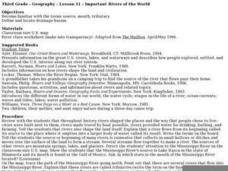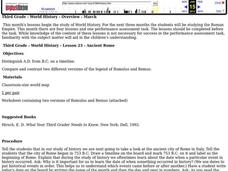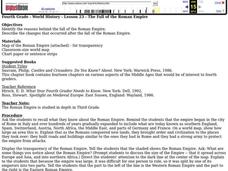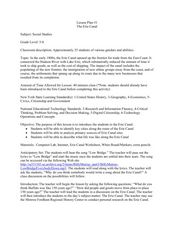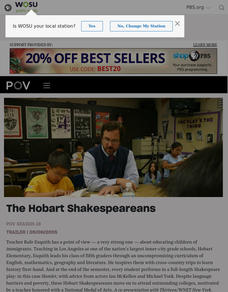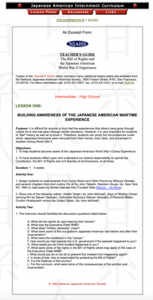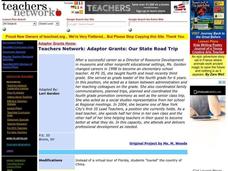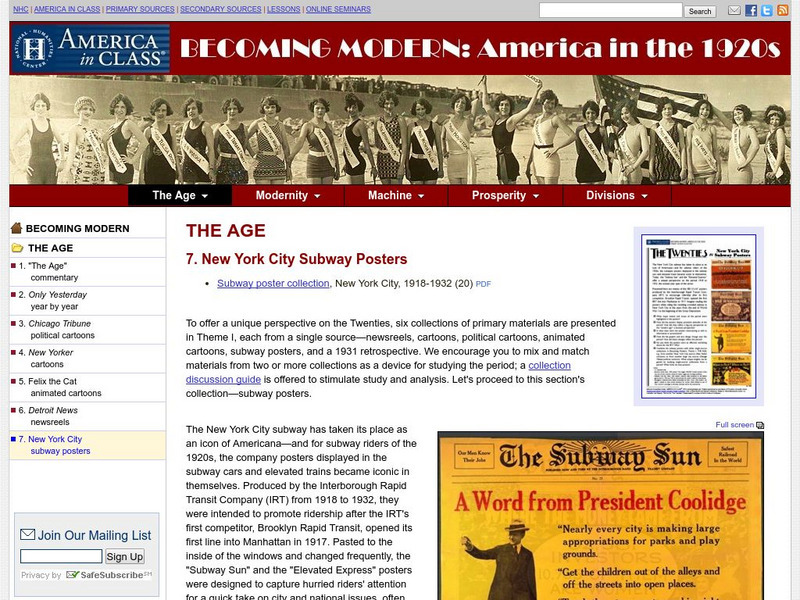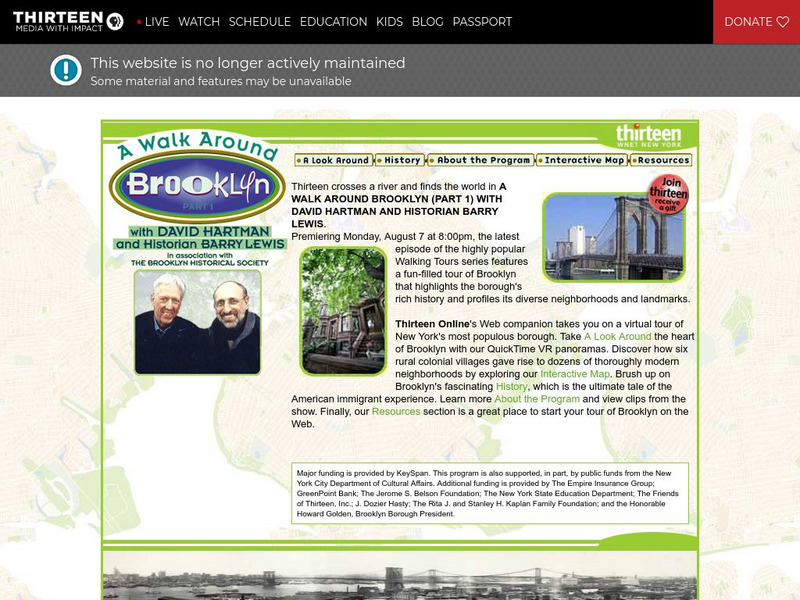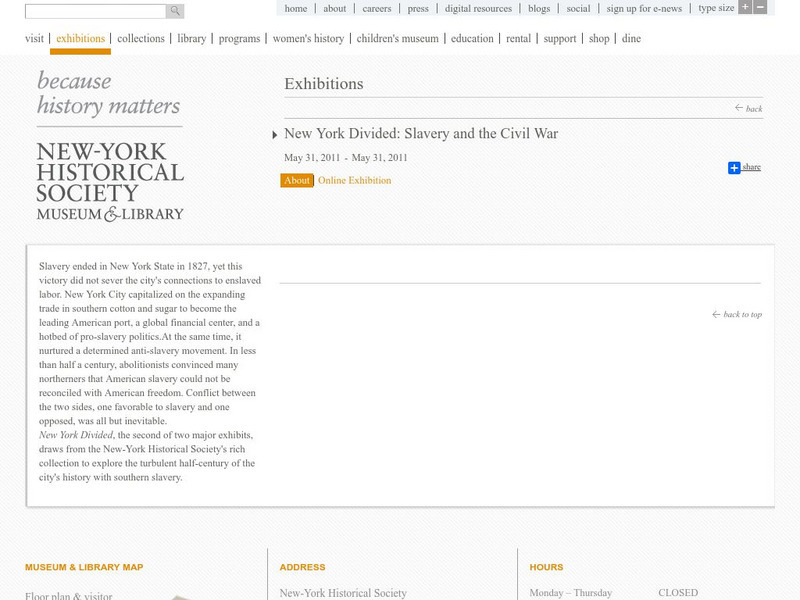Curated OER
Athabaskan Migration & Bering Strait
Middle schoolers examine the various migration patterns of the Athabaskan. In groups, they discuss the Bering Strait Land Bridge theory of migration and take notes on a lecture from their teacher. To end the activity, they brainstorm...
Curated OER
Athabaskan Migration & Bering Strait
Young scholars study Athabaskan migration patterns and the Bering Strait Land Bridge theory. They investigate the importance of the expansion of trade and compare the differences between American Indian oral tradition accounts of...
Curated OER
Whitman and Lincoln
Students determine if Lincoln and Whitman ever met and write a dialogue between the two men. In this Whitman and Lincoln lesson, students read Whitman's poem "Beat! Beat! Drums!" and connect it to the events of Lincoln's presidency....
Curated OER
Important Rivers of the World
Third graders become familiar with names of the different parts of a river, define and locate drainage basins, locate six of the continents and explore the major rivers on each one, conduct research on a river of their choice.
Curated OER
"The Universal Principal of Change"
Twelfth graders research the Kamakura Period, along with Confucian, Taoist, and Buddhist principles. Also, they study Yoshida Kenko.
Curated OER
Immigration and Urban Life
Fifth graders research the impact of immigration. In this social studies instructional activity, 5th graders discuss how immigration affected the economy. Students discuss the living and working conditions of immigrants in the 1800s.
Curated OER
Ancient Rome
Third graders distinguish A.D. from B.C. on a timeline. They compare and contrast two different versions of the legend of Romulus and Remus.
Curated OER
The Roman Empire
Fourth graders identify the reasons behind the fall of the Roman Empire and describe the changes that occurred after the fall of the Roman Empire.
Curated OER
A Study of Cross-Cultural Connections
Ninth graders analyze connections between Asia and Europe in the pre-Renaissance period. They identify and analyze elements of Japanese and Chinese culture similiar to that of feudal Europe.
Curated OER
Scaling the Map
Students practice determining map distances using the map scales. They discover how much an area represents on the map in relation to the actual area. They decide on the best place to build their cavern.
Curated OER
The Rose Center
Students utilize Internet sites to improve word recognition, increase vocabulary and comprehension of the English language. They complete a worksheet stating facts from selected Internet sites. They write a composition about the web...
Curated OER
The Eerie Canal
Students discover bodies of water in the United States by investigating the Eerie Canal. In this U.S. Geography instructional activity, students discuss Lake Eerie and the canal that was built in order to transport goods. Students...
Curated OER
Rafe's Classroom Secrets
Students consider Rafe's classroom secrets and teaching methods.
Curated OER
Time Train
Students are read a short book "Time Train" by Paul Fleischman. Using the text, they identify the clues to let them know the train is traveling back in time. They make a time line of the trip and make a cutout of meat-eating and...
Curated OER
Translating Traditions
Learners analyze art reflective of traditions and cultural heritage. In this art analysis lesson plan, students complete image based discussion.
Curated OER
The Ottoman Empire
Pupils compare the basic religious beliefs/and value systems of the three major religions that developed in the Middle East. Each group focuses on one of the religions, then reports to the rest of the class.
Curated OER
Building Awareness of the Japanese American Wartime Experience
Pupils research the Japanese American World War II Camp Experience. They discuss the experience in the context of civil rights and the Bill of Rights.
Curated OER
Our State Road Trip
Learners take a virtual tour of the country of China instead of a state. Using the Internet, they examine the differences between a political and physical map and use latitude and longitude to locate specific places. They also research...
National Humanities Center
National Humanities Center: America in Class: America in the 1920s: New York City Subway Posters
The National Humanities Center presents collections of primary resources compatible with the Common Core State Standards - historical documents, literary texts, and works of art - thematically organized with notes and discussion...
National Geographic
National Geographic: Society: A History of Trade in New York City
A lesson based on the New York City seal that explores the trading relationship between the Dutch and Native Americans in New Amsterdam.
National Humanities Center
National Humanities Center: America in Class: America in the 1920s: Modern City in Art
The National Humanities Center presents collections of primary resources compatible with the Common Core State Standards - historical documents, literary texts, and works of art - thematically organized with notes and discussion...
Lonely Planet
Lonely Planet: New York City
Lonely Planet travel site provides beautiful photos along with a detailed history, geography and top attractions of New York City.
PBS
Wnet: Thirteen: New York: A Walk Around Brooklyn
This is the web companion to a TV series of video walking tours of famous New York Neighborhoods. Take a virtual tour through the borough of Brooklyn, New York and see all the landmarks and treasures it is famous for. You can also read...
Other
New York Historical Society: New York Divided Slavery and the Civil War
Visit this virtual museum exhibit to learn about New York City's divided opinions about slavery before and during the Civil War. There are three themes covered: Pro-Southern City, Fighting Slavery, and Civil War. Students use a...





